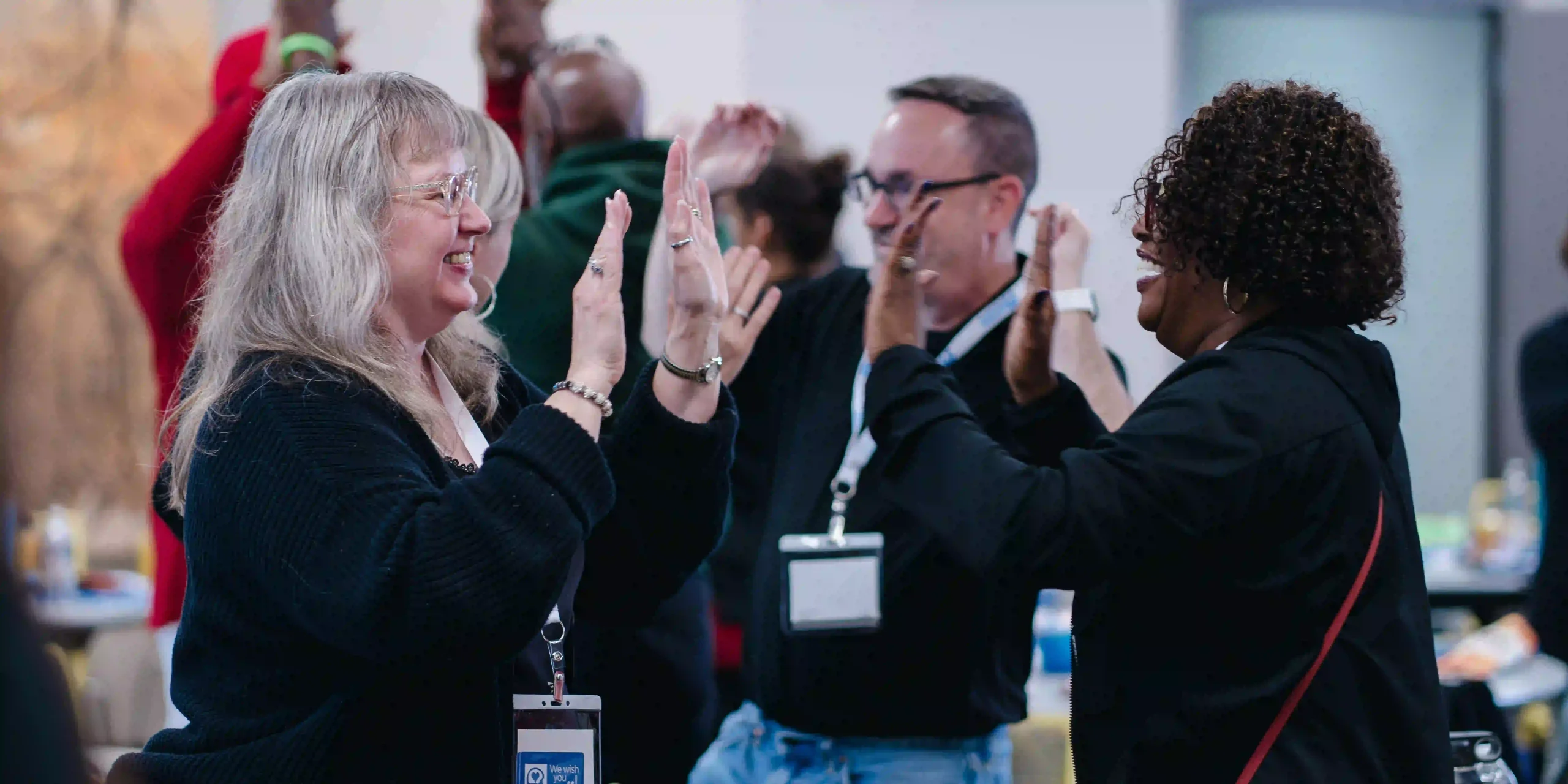Educator Workshop for Building Your Base to Further Your Outcomes
Educators and school leaders across the nation are desperate for effective ways to decrease student behavior issues, increase job satisfaction and retention, and increase executive function and academic achievement. At Conscious Discipline, we know that the only way to accomplish these outcomes is through self-regulation and a felt sense of belonging.
The variety of SEL (Social and Emotional Learning) programs and practices is growing by the day as schools, organizations, and workplaces seek to tackle steep challenges. While there are plenty of SEL materials and curricula developed with school systems in mind, Conscious Discipline is the only adult-first, research-backed and brain-based practice that places the focus on personal self-regulation and creating a positive educational culture of belonging.
Outcome: Increase Executive Function, Increase Academic Achievement
“Executive function” is an education buzzword. But what does it mean exactly, and why does it matter? “Executive function is a set of skills that are essential, not just for school achievement, but for life happiness and success. These skills help people pay attention, plan, organize, make decisions, stick to their goals, control emotions and impulsivity, learn from past mistakes, and take other people’s perspectives. These neurocognitive skills include working memory, inhibitory control and cognitive flexibility. Executive function is often a better predictor of academic and life success than traditional IQ tests, and it helps protect children from adversity-related risks.” (Conscious Discipline)
When phrased this way, it makes sense that a focus on a cognitive process like executive function would have a deep impact on academic achievement. Students who are well-organized, exhibit the ability to plan for assessments and stick to their goals are more likely to achieve academic success. Conscious Discipline has a proven record of accomplishment for improving executive functioning skills in schools, organizations, and homes. These are among the many welcome by-products of self-regulation.
Outcome: Increase Job Satisfaction and Retention
Teacher and administration retention, and the symbiotic relationship they exhibit, are hot topics since the pandemic. According to data collected by ERStrategies, there is convincing evidence that when administrators leave schools, teachers often follow suit. “Across all school years in our analysis, teacher turnover rose during the same year a principal left their school. At the end of the 2021-22 school year, less than a quarter of teachers left their school when the principal stayed, but a third of teachers left their school if their principal also left.”
The focus Conscious Discipline places on adult-first regulation and establishing connections by building a School Family can help teachers feel supported no matter what might be going on in their administration. This leads to greater job satisfaction, retention, and longevity. The positive connections and felt sense of belonging are also known to lower anxiety and depression and raise self-esteem in both children and adults (BetterHealth).
Outcome: Decrease Negative Student Behavior
A positive school climate impacts everything from increased teaching time to a decrease in unwanted student behavior. Start with a Safe Place Self-Regulation Center to teach and practice self-regulation and accompany this practice with meaningful rituals that build connection and belonging. As you advance in your practice, utilizing the Conscious Discipline’s C.A.R.E. room concept will provide targeted practices for “repeat offenders.” C.A.R.E. stands for “Calming And Recovery Environment.” It represents a fundamental shift away from behavioral approaches such as In-School Suspension rooms, transforming these environments from places of punishment to places where students are active participants in learning essential self-regulatory skills. The C.A.R.E. room acts as both a preventative and an in-the-moment solution. It provides an inviting setting where students are coached to self-regulate and solve conflicts. It is also used for prevention purposes, utilizing specific Conscious Discipline powers, skills, and strategies such as the Kindness Tree, the Feeling Buddies and the Five Steps to Regulation to help students maintain or recover composure before an outburst.
Maybe you’ve been part of the Conscious Discipline family for a while now, but have been hesitant to attempt implementation in your school or home. Perhaps you’ve heard about Conscious Discipline from a friend, and you really want to understand the practical side of implementation. Or maybe you have implemented Conscious Discipline for years, but you are in a new school or organization, or your needs have changed, and it feels like you are starting all over.
It can be hard to navigate the road from prizes and punishments to intrinsic motivation and connection— but the road less traveled can make all the difference. Building your Base: The Roadmap to a Sustainable Conscious Discipline Practice Workshop in Providence, RI from June 25th-26th provides the practices and planning you need to lay the strongest possible foundation for Conscious Discipline implementation in your school. Centered around the Ten Essentials for Implementation and a personalized Action Planner, this hands-on event with Conscious Discipline Certified Instructors Diane Phelan and Jill Molli will help you craft a clear plan for lasting transformational change.
Resources:
Products:
The NEW Conscious Discipline Book – Expanded & Updated
There’s Got to Be A Better Way: Discipline That Works
The Powers of Leadership (Premium Resources)
Articles:
Benefits of the School Family at Any Age
Podcasts:
District-Led Implementation and Shared Power
Culturally Responsive SEL and Being of Service
eCourses:
Powers of Resilience: SEL for Adults
Upcoming Educator Events:
Ft. Lauderdale, FL Teacher Event
Palm Springs, CA Teacher Event
Teacher Event in Nashville, TN 2024
Teacher Event in St. Louis, MO 2024




